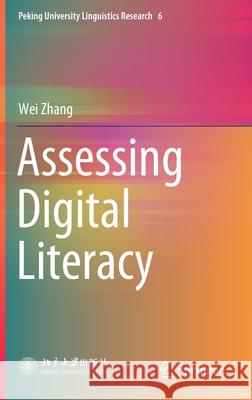Assessing Digital Literacy » książka
topmenu
Assessing Digital Literacy
ISBN-13: 9789811621284 / Angielski / Twarda / 2021 / 145 str.
Kategorie:
Kategorie BISAC:
Wydawca:
Springer
Seria wydawnicza:
Język:
Angielski
ISBN-13:
9789811621284
Rok wydania:
2021
Wydanie:
2021
Numer serii:
000840451
Ilość stron:
145
Waga:
0.40 kg
Wymiary:
23.39 x 15.6 x 1.12
Oprawa:
Twarda
Wolumenów:
01
Dodatkowe informacje:
Wydanie ilustrowane











